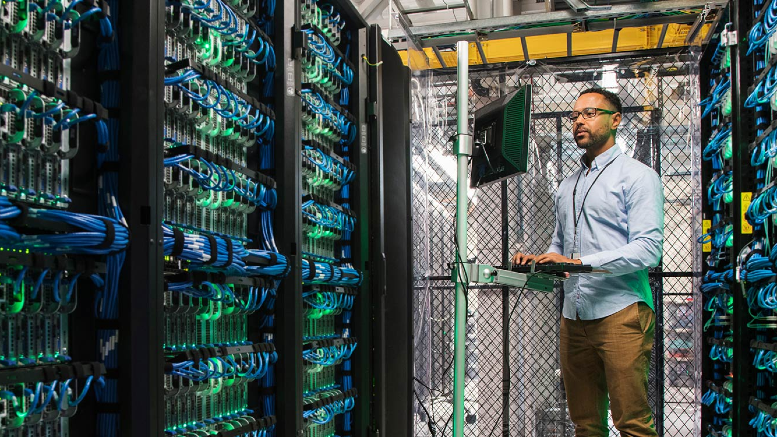Meet your future colleagues – advanced digital engineers
March 19, 2024 / Chris Arrasmith
Short on time? Read the key takeaways:
- As baby boomers retire, organizations are concerned that long-standing core systems will not be supported due to a skills gap.
- Advanced digital engineers can help navigate the complexities of proprietary systems and ensure seamless operations in the face of a skills gap.
- These AI-generated advanced digital engineers harness the power of advanced algorithms and vast databases of past experiences to address the most intricate deployment scenarios and edge cases.
After years of service devoted to running a mission-critical core banking system, a key expert retires. What happens if no one else is an expert in COBOL? What if the system can no longer process payments because a new team member hasn’t learned a workaround yet? What if AI could help?
As the baby boomer generation — born between 1946 and 1964 — retires, leaders are increasingly concerned about the availability of technologists who can support complex, core business systems, applications and workloads. Organizations with core business systems cannot wait years for someone new to learn the nuances of these systems, which are often highly customized or proprietary.
The show must go on. Business must continue. But what if there’s a shortage of experts in these essential systems that drive business operations?
You can bridge the gap with advanced digital engineers. These AI-generated digital counterparts combine deep technical expertise with strategic problem-solving abilities to play a critical role in sustaining organizational resilience. Here’s why and how they work.
Tackling the expertise transition challenge
It takes time to become proficient in any task and even longer to become an expert. Mastering the intricacies of niche, proprietary systems is no exception. Enterprises are investing time and money to train their personnel to master complex systems. However, by the time these employees become experts, they will have already spent years at a company and are likely looking toward their next career move.
On average, baby boomers stay at a job for a little more than eight years, while millennials — born from 1981 to 1995 — work for a company for an average of two. This trend illustrates how younger generations quickly acquire and apply new skills and then move on.
Enterprises must take steps to keep employees engaged. How? By providing diverse opportunities to use and deploy innovative technologies — while supporting long-standing systems. Newer hires are inclined to stay longer with this support. At the same time, you’re able to drive expertise, so you have the time, energy and funding to diversify.
With the help of these digital counterparts, enterprises can ensure sustainable proprietary expertise while freeing up associates’ time and energy to diversify their skill set. Recognizing these broader workforce trends, at Unisys, we have developed a targeted approach to address these challenges.
AI-enabled advanced digital engineers at Unisys
Addressing this skills gap in creative ways is an effort we have a lot of experience with at Unisys. Many of our clients in diverse industries such as telco, healthcare and life sciences and in the public sector have relied on our proprietary systems for decades. This includes our banking solutions, cargo systems and mission-critical applications. Our associates possess deep insights into these systems, having been intimately involved with their operations for years. They understand the intricacies of technology dependencies, past code base upgrades and the evolution of integration layers. Over time, they’ve developed solutions for routine issues, leaving only complex edge cases unresolved. When one of these associates approaches retirement, we face the issue I mentioned at the start of this post. What now?
At Unisys, we recognize the critical role of advanced digital engineers. They are equipped to navigate the complexities of proprietary systems and ensure seamless operations despite a skills gap. By using advanced algorithms and enabling access to vast databases of past experiences, advanced digital engineers provide our associates with access to a wealth of knowledge and insights. This equips them to tackle complex deployment scenarios and edge cases, navigate operational challenges and maintain core solutions with greater ease.
The function and impact of advanced digital engineers
To further enhance our capabilities, we’re challenging our engineers to create virtual versions of themselves, transforming into advanced digital engineers with specialized insights derived from decades of collective experience. This innovative approach allows advanced digital engineers to provide thoughtful solutions by drawing from an extensive database of past experiences and knowledge, empowering our newer, more junior associates to overcome challenges and drive success.
To make this happen, we are collecting and curating large language models — a subset of generative AI that comprehends human language and delivers responses that closely mimic human conversation — to expand the advanced digital engineer beyond handling repetitive and support-level tasks. Their true value lies in addressing problems in extraordinarily complex deployment scenarios and edge cases requiring specialized expertise.
So, when faced with an edge case, a Unisys team member, even one with only a few years of experience, can seek guidance from an advanced digital engineer. This digital expert draws upon a comprehensive range of experiences to solve that problem. When team members retire, it’s imperative that their successors have a similar breadth and depth of expertise to ensure continued customer care. Advanced digital engineers help train that person by exposing them to a wide range of past experiences and scenarios.
The responsibility to build a resilient workforce
As you look toward building a workforce capable of adapting to rapid technological and generational changes, consider these questions:
- How is your organization preparing for the generational shift in expertise as seasoned professionals retire?
- In what ways can the integration of advanced digital engineers influence your approach to problem-solving and innovation?
Reflecting on these questions can provide valuable insights into your organization's readiness for future challenges. To aid in this journey, here are some tips to help you deploy an effective strategy:
- Begin with your business strategy. You must understand your current processes and offerings and how they’re helping you meet client needs. This approach can help create new and potentially unexpected value for future offerings and capabilities.
- Balance stability and advancement. Enterprises need to continue supporting their established offerings — their bread and butter — as their associates become experts in emerging technologies.
- Pay special attention to workforce dynamics. While accelerating proficiency in expert-level tasks is crucial, providing alternative skill development paths is an essential part of caring for your associates. This not only helps to retain your workforce but also supports their continuous growth and development.
As the proprietors and creators of technology products and platforms, Unisys bears an exceptional responsibility to our global client base. We continue to invest in associate development to improve and support the products that run our clients’ mission-critical ecosystems. This client-focused approach is integral to building sustainable, long-term partnerships and driving mutual success.
Discover how Unisys can empower your organization to unlock the limitless potential of AI to make swift, data-driven decisions, automate tasks, streamline processes and free up valuable employee time for strategic initiatives.
With Unisys' AI expertise, your organization can surpass conventional tools to accelerate efficiency, boost productivity and transform operations.
Unisys is a global technology solutions company that powers breakthroughs for the world’s leading organizations. Our solutions – cloud, data and AI, digital workplace, logistics and enterprise computing – help our clients challenge the status quo and unlock their full potential. To learn how we have been helping clients push what’s possible for 150 years, visit unisys.com and follow us on LinkedIn.



















